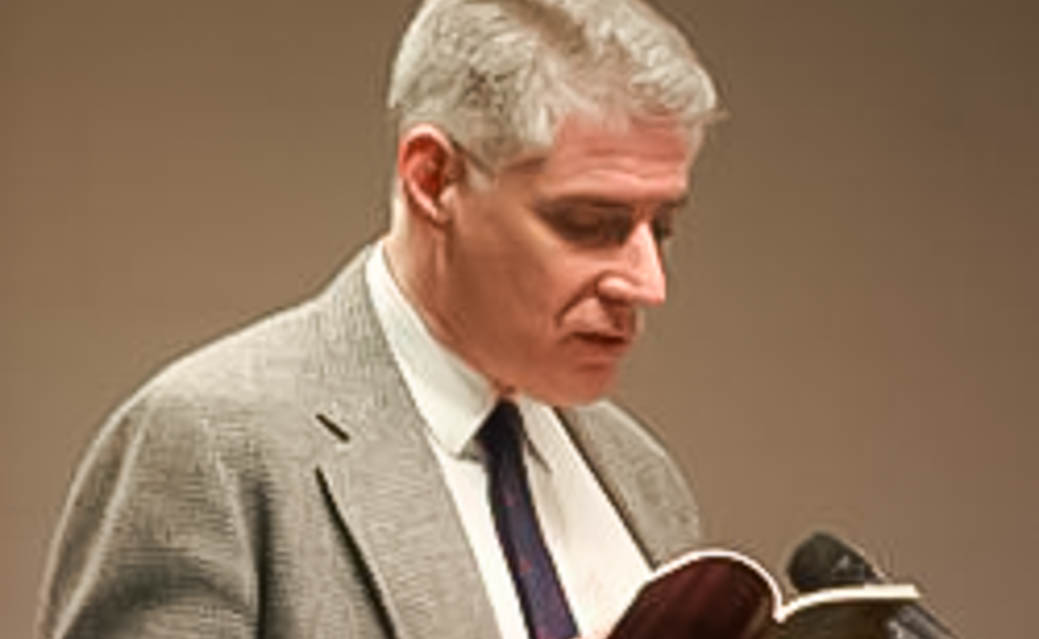Richard Greene’s alternative perspective in The Unquiet Englishman: A life of Graham Greene
The emphasis on Graham’s impact in the twentieth century makes this celebrated book stand out among other biographies.
On the evening of March 3, I sat down with University of Toronto English Professor Richard Greene to discuss his renowned narrative nonfiction, The Unquiet Englishman: A Life of Graham Greene. Published on January 12 in 2021, Greene’s book was a finalist for the 2022 Edgar Award, a Washington Post Best Nonfiction Book of the Year, and has been well received by The Telegraph, The New Yorker, The Spectator, and The Times.
The Unquiet Englishman, a sequel to Professor Greene’s book Graham Greene: A Life in Letters, is a biography on Graham Greene that examines the journalist’s travels throughout his writing career and the manner in which he was inspired by several countries and cultures. Professor Greene explained that this book had been in the works for the past decade. He decided to write it because he felt that there was no adequate biography for one of the most relevant twentieth-century literary figures, a man who was not simply an outstanding author but a Nobel Prize candidate to boot.
The book is incredibly nuanced and explores narratives that intertwine with one another. Professor Greene stated that while The Unquiet Englishman is “very adventurous and eventful in nature,” it is ironically a tragedy more so than an adventure. The book discusses Graham Greene’s personal history, his battle with bipolar depression, his familial and sexual relationships, and his ideas on the Catholic faith. Despite heavily exploring religion in significant works such as Brighton Rock (1938) and The Power and the Glory (1940), Graham Greene was not very religious in his personal life and rejected the notion that he was a “religious writer.”
A prominent aspect of Graham Greene’s story is his struggle with mental illness. As a high school student, he played Russian Roulette to alleviate his constant boredom. His mother and brother disputed that the pistol contained bullets, but Graham Greene was still diagnosed with manic depression—now known as bipolar disorder. Regardless of whether he was suicidal or not, his behaviour was deemed unstable and detrimental.
During university, Graham Greene told his friend, Evelyn Waugh, that he spent most of his time in a “general haze of drink.” While he was a writer, Graham Greene was addicted to alcohol, drugs, taking Benzedrine to wake up, Nembutal to sleep, and regularly smoking opium.
While other biographies on Graham Greene tend to focus on his salacious sexual activity, The Unquiet Englishman is more interested in his life as a traveller, particularly someone who traversed developing countries. The book’s jacket copy states that it “reads like a primer on the twentieth century itself” and depicts Graham Greene as an “unfailing advocate for human rights.”
Professor Greene heavily stressed that the many countries Graham Greene examined “cannot be viewed as background.” He said, “To examine these countries: Haiti, Liberia, and Vietnam, to name a few, in such a narrow capacity is arrogant and ethnocentric. These places have a rich history and if he had not explored it, [Graham’s] craft would have lacked texture.”
Although Graham Greene himself never claimed to be a “freedom fighter,” he also never rejected the idea and was somewhat of a social democrat. He can best be perceived as a political observer of Africa, Asia, and Latin America and the Caribbean. During his travels, he was more concerned with interacting with the locals and exploring the country as opposed to getting involved in politics. Although, while visiting Haiti during the mid-1960s, Graham Greene publicly confronted the dictator Francois “Papa Doc” Duvalier after witnessing his unjust rule. It is fair to state that while he was not a political figure, he did involve himself in social and cultural politics, especially when injustices occurred.
The Unquiet Englishman: A Life of Graham Greene is a different perspective on the life of Graham Greene that, unlike mainstream autobiographies, focuses more on the themes of mental illness and cultural relativism rather than an intention to titillate the reader. When questioned about the target audience, Professor Greene stated, “A variety of readers can read this book including, but not limited to, people who care about twentieth-century literature and politics and students wanting to source scholarly researched works.” He added, “a common but informed reader is of great interest to me.”

